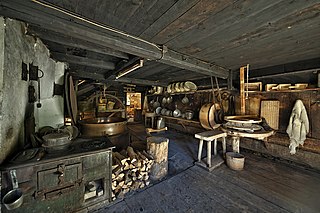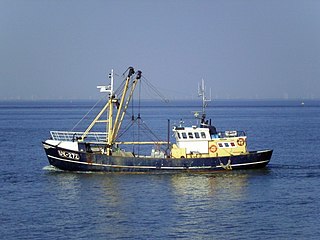
The European patent with unitary effect, also known as the unitary patent, is a European patent which benefits from unitary effect in the 17 participating member states of the European Union. Unitary effect may be requested by the proprietor within one month of grant of a European patent, replacing validation of the European patent in the individual countries concerned. Infringement and revocation proceedings are conducted before the Unified Patent Court (UPC), which decisions have a uniform effect for the unitary patent in the participating member states as a whole rather than in each country individually. The unitary patent may be only limited, transferred or revoked, or lapse, in respect of all the participating Member States. Licensing is however possible for part of the unitary territory. The unitary patent may coexist with nationally enforceable patents in the non-participating states. The unitary patent's stated aims are to make access to the patent system "easier, less costly and legally secure within the European Union" and "the creation of uniform patent protection throughout the Union".

A dairy is a place where milk is stored and where butter, cheese and other dairy products are made, or a place where those products are sold. It may be a room, a building or a larger establishment. In the United States, the word may also describe a dairy farm or the part of a mixed farm dedicated to milk for human consumption, whether from cows, buffaloes, goats, sheep, horses or camels.

The European Communities Act 1972, also known as the ECA 1972, was an act of the Parliament of the United Kingdom which made legal provision for the accession of the United Kingdom as a member state to the three European Communities (EC) – the European Economic Community, European Atomic Energy Community (Euratom), and the European Coal and Steel Community ; the EEC and ECSC subsequently became the European Union.

The European Court of Justice (ECJ), formally just the Court of Justice, is the supreme court of the European Union in matters of European Union law. As a part of the Court of Justice of the European Union, it is tasked with interpreting EU law and ensuring its uniform application across all EU member states under Article 263 of the Treaty of the Functioning of the European Union (TFEU).

A directive is a legal act of the European Union that requires member states to achieve particular goals without dictating how the member states achieve those goals. A directive's goals have to be made the goals of one or more new or changed national laws by the member states before this legislation applies to individuals residing in the member states. Directives normally leave member states with a certain amount of leeway as to the exact rules to be adopted. Directives can be adopted by means of a variety of legislative procedures depending on their subject matter.

Parmesan is an Italian hard, granular cheese produced from cows' milk and aged at least 12 months.

Eur-Lex is an official website of European Union law and other public documents of the European Union (EU), published in 24 official languages of the EU. The Official Journal (OJ) of the European Union is also published on EUR-Lex. Users can access EUR-Lex free of charge and also register for a free account, which offers extra features.

In the European Union, competition law promotes the maintenance of competition within the European Single Market by regulating anti-competitive conduct by companies to ensure that they do not create cartels and monopolies that would damage the interests of society.
In European Union law, direct effect is the principle that Union law may, if appropriately framed, confer rights on individuals which the courts of member states of the European Union are bound to recognise and enforce.

Raw milk or unpasteurized milk is milk that has not been pasteurized, a process of heating liquid foods to kill pathogens for safe consumption and extending the shelf life.

R v Secretary of State for Transport was a judicial review case taken against the United Kingdom government by a company of Spanish fishermen who claimed that the United Kingdom had breached European Union law by requiring ships to have a majority of British owners if they were to be registered in the UK. The case produced a number of significant judgements on British constitutional law, and was the first time that courts held that they had power to restrain the application of an Act of Parliament pending trial and ultimately to disapply that Act when it was found to be contrary to EU law.

Buffalo mozzarella is a mozzarella made from the milk of the Italian Mediterranean buffalo. It is a dairy product traditionally manufactured in Campania, especially in the provinces of Caserta and Salerno.

The European single market, also known as the European internal market or the European common market, is the single market comprising mainly the 27 member states of the European Union (EU). With certain exceptions, it also comprises Iceland, Liechtenstein, and Norway and Switzerland. The single market seeks to guarantee the free movement of goods, capital, services, and people, known collectively as the "four freedoms". This is achieved through common rules and standards that all participating states are legally committed to follow.
European patent law covers a range of legislations including national patent laws, the Strasbourg Convention of 1963, the European Patent Convention of 1973, and a number of European Union directives and regulations. For some states in Eastern Europe, the Eurasian Patent Convention applies.
The freedom of movement for workers is a policy chapter of the acquis communautaire of the European Union. The free movement of workers means that nationals of any member state of the European Union can take up an employment in another member state on the same conditions as the nationals of that particular member state. In particular, no discrimination based on nationality is allowed. It is part of the free movement of persons and one of the four economic freedoms: free movement of goods, services, labour and capital. Article 45 TFEU states that:
- Freedom of movement for workers shall be secured within the Community.
- Such freedom of movement shall entail the abolition of any discrimination based on nationality between workers of the Member States as regards employment, remuneration and other conditions of work and employment.
- It shall entail the right, subject to limitations justified on grounds of public policy, public security or public health:
- The provisions of this article shall not apply to employment in the public service.
Article 102 of the Treaty on the Functioning of the European Union (TFEU) is aimed at preventing businesses in an industry from abusing their positions by colluding to fix prices or taking action to prevent new businesses from gaining a foothold in the industry. Its core role is the regulation of monopolies, which restrict competition in private industry and produce worse outcomes for consumers and society. It is the second key provision, after Article 101, in European Union (EU) competition law.
Van Gend en Loos v Nederlandse Administratie der Belastingen (1963) Case 26/62 was a landmark case of the European Court of Justice which established that provisions of the Treaty Establishing the European Economic Community were capable of creating legal rights which could be enforced by both natural and legal persons before the courts of the Community's member states. This is now called the principle of direct effect. The case is acknowledged as being one of the most important, and possibly the most famous development of European Union law.
Françoise Gravier v City of Liège (C-293/83) was an important freedom of movement case in European law concerning non-discrimination in access to vocational education. It held that an education institution may not discriminate against students in terms of the fees they charge on grounds of nationality.

The Unified Patent Court (UPC) is a common patent court of 17 countries of the European Union, which opened on 1 June 2023.












